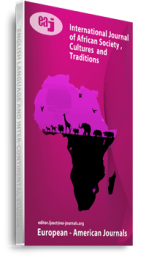This article examines aspects of the socio-cultural institutions and practices in the context of traditional Mbaise society and culture. The process of evolution and growth of Mbaise society was predicated on a number of institutions and practices which had socio-cultural, political, economic and religious implications. Appreciating the fact that social development is a vast area in socio-cultural history, the paper concentrated on the family structure, marriage institutions, religious beliefs and practices. Traditional Mbaise society was endowed with these great institutions and others which Christianity sought to wipe out, though without success. The impact of Christianity and other western influences notwithstanding, the paper argues that these institutions generated ideas, values, and norms which crystallized into the Mbaise identity and cosmology. Against the backdrop of the popular opinion held by the western writers to the effect that pre-colonial African societies were not part of world history and civilization (and hence incapable of initiating change), we argue further that this negative and bias narrative about pre-colonial African societies is now very anachronistic and no longer worthy of intellectual attention by scholars of both African and European persuasions
Keywords: Africa, Christianity, Mbaise, Religion., Socio-cultural, Tradition, history

